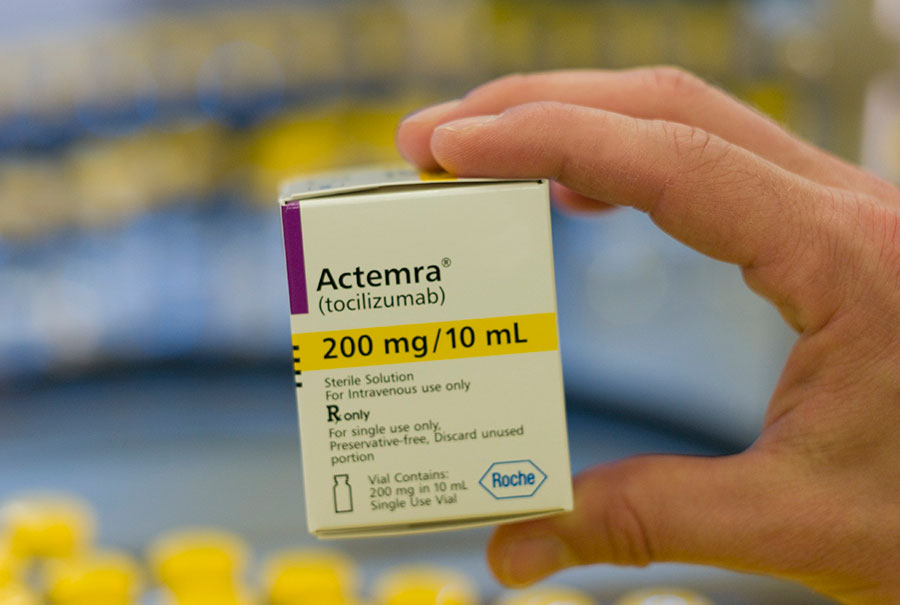A new study, published online on medRxiv, has shown that Actemra (tocilizumab) could have a favorable effect on patients with severe COVID-19 infection who need mechanical ventilation; however, this needs to confirmed through clinical trials.
Researchers from the University of Michigan found that Actemra, a humanized monoclonal antibody against the interleukin-6 (IL-6) receptor, could help patients to survive severe coronavirus infections.
COVID-19, the disease caused by the novel coronavirus, can cause acute respiratory distress syndrome (ARDS) in some people, leading to death in a significant number of cases.
Experts believe that the underlying pathology in severe COVID-19 is hyper-inflammation caused by the uncontrolled release of cytokines, the proteins that are released due to an intense immune response to the virus.
IL-6 can damage the lung tissue after hyper-immune responses, activating certain pro-coagulant pathways and causing endothelial injury, which could lead to thrombosis. And IL-6 blockers, such as Actemra, have been found to be useful in treating such conditions.
While Actemra has been studied in small trials, there is no conclusive evidence of its efficacy in treating COVID-19 infection. In addition, the drug could cause a blockade of all IL-6-dependent pathways, causing viral myocarditis, a cardiac complication.
Actemra was studied to see its effect on the most severely ill COVID-19 patients, especially those who required mechanical ventilation. The study included 154 severely ill COVID patients, of which, 78 were on tocilizumab and 76 were not on this drug.
The findings showed that the use of Actemra was associated with a 45% reduction in the risk of death. More than 55% of patients were discharged home after taking the drug over the study period of 47 days. Furthermore, the researchers noted that nearly 47% of patients who did not receive the drug remained on the ventilator throughout the follow-up period.
The use of Actemra was linked to a higher incidence of super-infection but it reduced the risk of death. The risk of super-infection is significantly higher with the drug, which calls for more, well-powered clinical studies before concluding that the drug is safe and effective in treating critically ill COVID patients.























